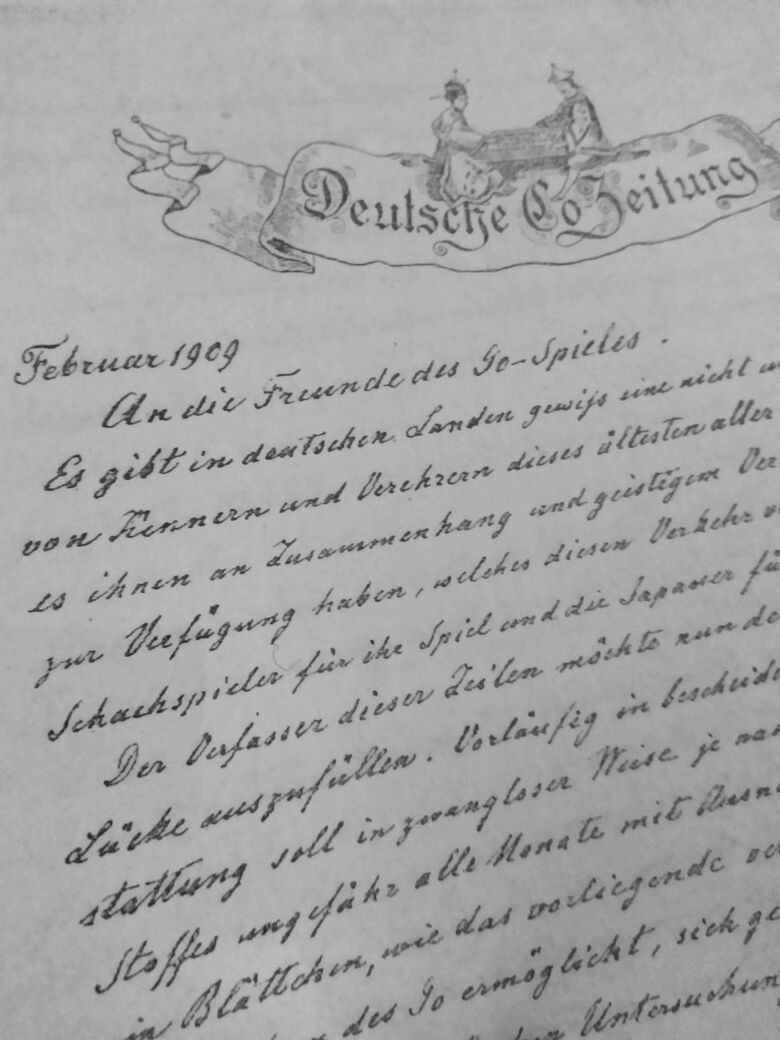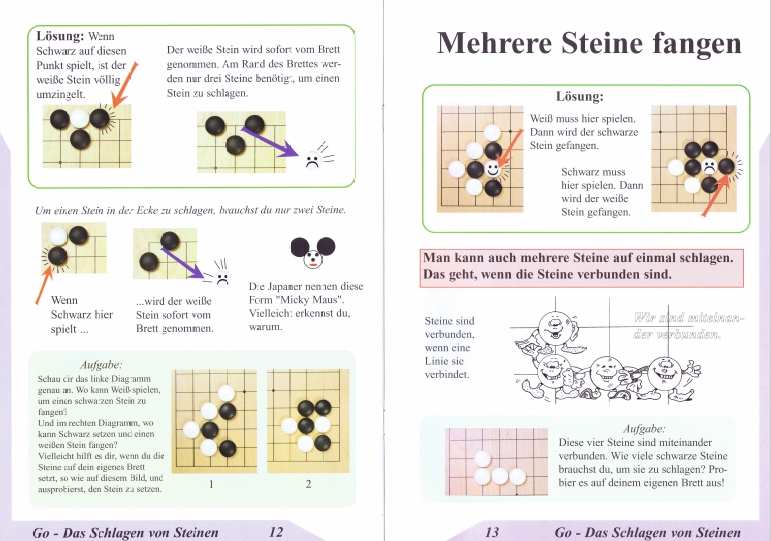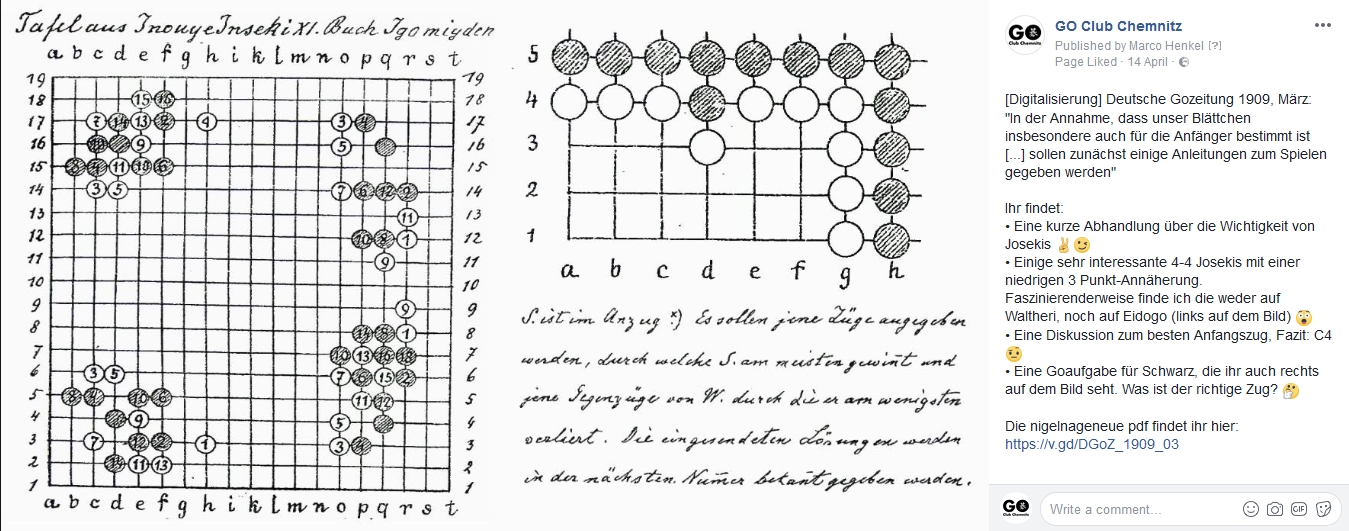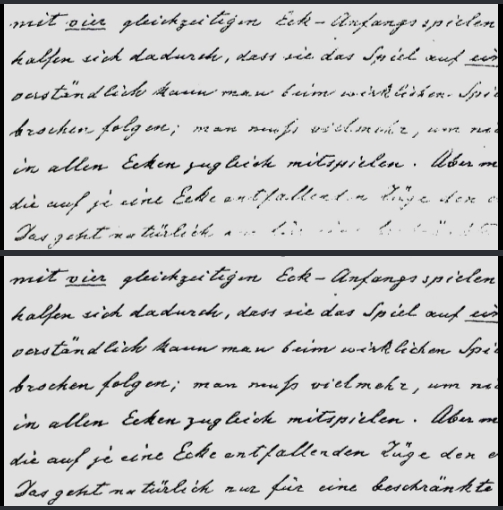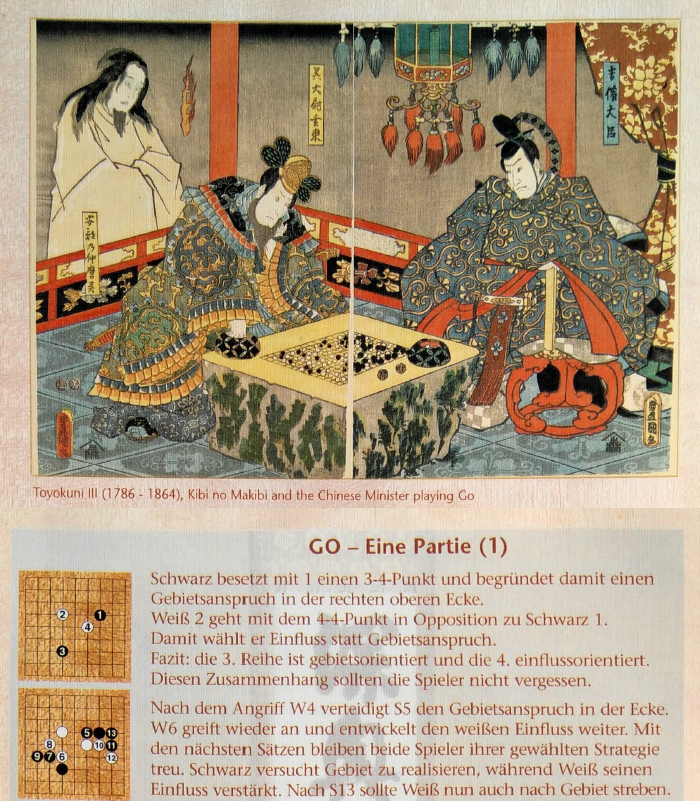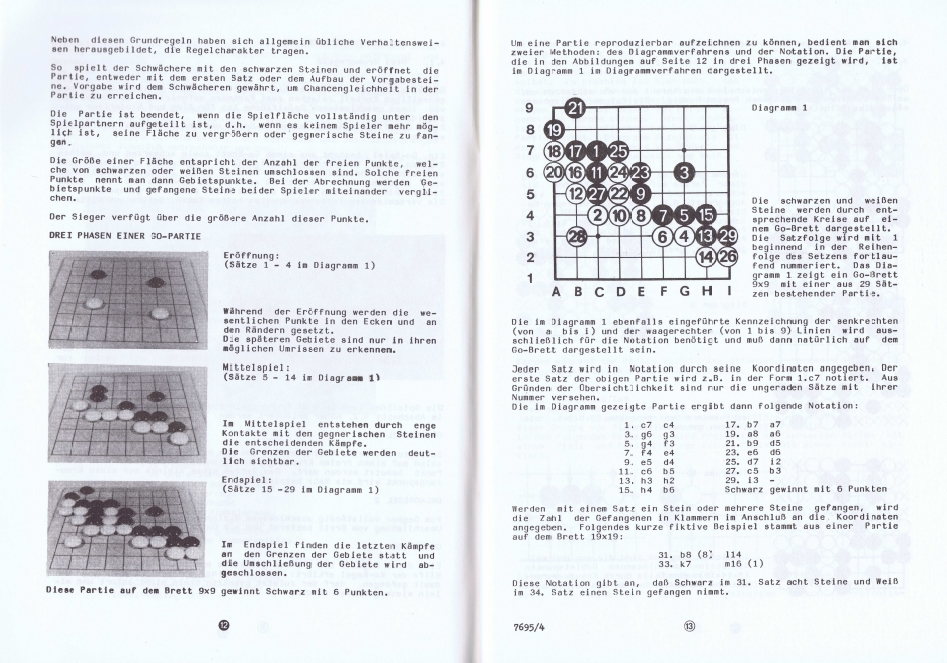Digitisation of Historical Go Documents
| Name: | Digitisation of Historical Go Documents |  |
| Contributor: | Marco Henkel | |
| Start: | 2018-03-01 | |
| Organisation: | ||
| Edition: | 2018 |
Project Description
This project aims to provide digital access to older books and other documents surrounding the game of Go that would be unaccessible for the wider community otherwise, and have no current publishing rights holder. For that purpose, I am working with the German Go Association (Deutscher Go-Bund) to get access to said texts and to investigate the current publishing rights situation of these documents.
The first documents that have been made accessible for everyone online were the first copies of the German Go Journal (Deutscher Go Zeitung) from 1909 and some other study books/booklets around various topics, mostly of an introductory nature. Because of my source, these documents are all German so far, but I want to extend this to English literature if I get the chance.
Aim of the Project
It came to my attention that a plethora of content and documents surrounding the game of Go simply became inaccessible over time. There have been several reasons, from books not being sold anymore, over access to data being lost, to companies holding the rights to certain bits of information or texts simply going bankrupt. In the last case, the access to those texts simply vanishes, which I find even more troubling considering the limited amount of content released in English/German compared to Chinese/Korean and Japanese. Additionally, there are some documents that need restoration work, which are very time intensive to work on, in order for me to be able to ensure their readability. Even though I am a relatively new enthusiast for this game, I find it deeply troubling how hard it is for new players to reconnect with the actual accounts of history that have been written down over the past thousands, hundreds or even dozen years. I aim to make sure that the Go community can reclaim some of its history, and I am working with the German Go Association to investigate which kind of documents we have access to that we can make freely available for the whole community.
The intended target groups are all enthusiasts of the game of Go, be that for books and documents that have mostly a historic value (because of outdated research) or documents that still hold intrinsic teaching value. There have also been first discussions with other projects looking to improve teaching the game to children, which have voiced an interest in using the digitised teaching content as commission-free, professional content for modern teaching materials.
Location
Internet, as the information is posted and shared across multiple online platform, such as Reddit, Facebook and Go forums.
Timeline
This project and first discussions with the German Go Association started at the beginning of March 2018. Due to its open ended nature, there are no further deadlines. I plan to release new documents regularly for the upcoming years, whenever I get to finish them.
Means of the Project
Currently, the German Go Association's archivist is sending me documents via physical mail so that I can digitise the content. After receiving the documents, I use a local scanner to make digital copies of the documents and once I ensure a readable quality, I share these with the Go community via Facebook, Reddit and other Go forums.
Results
Through the first few documents that I posted, I reached several thousands of people, which led to the slow spread of the existence of this project. Feedback has been mostly positive so far, with Go enthusiasts appreciating the preservation of the games' history.
You can find all uploaded documents in these two links:
- https://www.dropbox.com/sh/dirwnelfdy44m8x/AAAfxLWN_emGDl7P6Vuwzdmia?dl=0
- https://www.dropbox.com/sh/zv90es42ywagn1k/AABbjyPyzDDlCQ3oAdYeA2CXa?dl=0
For the more time-intensive restoration process of older copies that are barely readable, you can find a comparison of my work to the originals in this little video example (wait 3 seconds for it to show): https://imgur.com/a/gYnmB
I expect these documents to be also accessible via the German Go Association website in the near future.
Human Resources
Currently, there are only two people directly involved: the archivist of the Deutscher Go-Bund, who provides me with the documents and his expertise on the situation surrounding these texts, and me as the person who scans, cleans and publishes the documents online. Depending on the document and a possible restoration effort, working on a single document/book can take from 30 minutes up to 10 hours.
Financial Resources
There are currently no external financial resources outside of the payment for the postage of the documents' transport, which is handled via the Archive budget of the German Go Association.
Exposure
The first files have been made available online with an overall reach of several thousand people. Many people from all over the world have voiced their appreciation of the project, even though I have only worked on German files so far.
Perspective
One long term project will be to continue sharing the historic texts of the German Go Journal and other Go literature currently inaccessible, such as GDR literature.
If we can continue the working relationship with the German Go Association and figure out a reliable and cost efficient way to transport those documents, I would love to find some more people interested in working on these files in the future or to improve the scanning process with better fitting technology for the different types of documents.
Wishes
If possible, I'd like to invest in another machine in the future, which would allow me to easier scan big piles of paper copies (as many older documents are not available in their original form, but as individual sheets). Additionally, I would love to share content that is relevant to the worldwide Go community, such as English texts. Cooperation with US or other EU Go associations for access or help would be highly appreciated. One such aspect could be an internal database for the people involved in these projects that can collaboratively share knowledge about which historical documents might be free of rights and as such free to share. Ideally, the US Go association for example would then provide a list of (e.g.) 40 documents that they researched to be eligible for this and I can check which of those documents I might have access to near me.
Additional Comments
I wish I had learned about this game sooner.
